Links To Free French Children’s Books
Links to Free French Children’s Books
One of the best ways―if not the best way―to improve your foreign language fluency is reading! Children’s books are the perfect place to start. Below I have linked a handful of free French children’s books from Internet Archive for those of you learning French.
Internet Archive is an online library that provides free access to books, movies, audio files, and other digitized materials. An account is required to view some of the listings, but you can create one for free.
Le bonhomme de pain d'épices (The Gingerbread Man) by Janet Brown

Blanche Neige et les sept nains (Snow White and the Seven Dwarfs)

Hello Kitty: Une surprise pour mama (Hello Kitty: A Surprise for Mom) by Ellen Weiss

La princesse au petit pois (The Princess and the Pea)

Bob l'éponge: Où est Gary? (SpongeBob: Where is Gary?) by David Lewman

More Posts from Edu-fuck-cated and Others
Les nationalités
1. American▪︎américain/américaine
2. Argentinian▪︎argentin/argentine
3. Algerian▪︎algérien/algérienne
4. Australian▪︎australien/australienne
5. Austrian▪︎autrichien/autrichienne
6. Belarusian▪︎biélorussien/biélorussienne
7. Belgian▪︎belge/belge
8. Brazilian▪︎brésilien/brésilienne
9. Bulgarian▪︎bulgare/bulgare
10. Canadian▪︎canadien/canadienne
11. Chinese▪︎chinois/chinoise
12. Colombian▪︎colombien/colombienne
13. Canadian▪︎canadien/canadienne
14. Cuban▪︎cubain/cubaine
15. Czech▪︎tchèque/tchèque
16. Dane▪︎danois/danoise
17. Dutch▪︎néerlandais/néerlandaise
18. Egyptian▪︎égyptien/égyptienne
19. English▪︎anglais/anglaise
20. Estonian▪︎estonien/estonienne
21. Finn▪︎finlandais/finlandaise
22. French▪︎français/française
23. German▪︎allemand/allemande
24. Greek▪︎grec/grecque
25. Hungarian▪︎hongrois/hongroise
26. Icelandic▪︎islandais/islandaise
27. Indian▪︎indien/indienne
28. Irish▪︎irlandais/irlandaise
29. Italian▪︎italien/italienne
30. Japanese▪︎japonais/japonaise
31. Korean▪︎coréen/coréenne
32. Latvian▪︎letton/letonne
33. Lithuanian▪︎lituanien/lituanienne
34. Macedonian▪︎macédonien/macédonienne
35. Mexican▪︎mexicain/mexicainne
36. New Zealander▪︎néo-zélandais/néo-zélandaise
37. Norwegian▪︎norvégien/norvégienne
38. Pole▪︎polonais/polonaise
39. Portuguese▪︎portugais/portugaise
40. Romanian▪︎roumain/roumaine
41. Russian▪︎russe/russe
42. Scottish▪︎écossais/écossaise
43. Slovak▪︎slovaque/slovaque
44. Slovene▪︎slovène/slovène
45. Spanish▪︎espagnol/espagnole
46. Swede▪︎suédois/suédoise
47. Swiss▪︎suisse/suisse
48. Turk▪︎turc/turque
49. Ukrainian▪︎ukrainien/ukrainienne
50. Welsh▪︎gallois/galloise
i will do another fifty soon to include the ones i left out. please correct me if i made any mistakes!






Hybrid Note Taking Style
A note taking method that blends the best of paper and digital note taking that I’ve been exploring lately. So far it’s working really well for me :) Hope it helps!
Hybrid Note Taking Method
Problems with other note taking systems
Each note taking system has its pros and cons. Here are some of the problems I found with (fully) paper and (fully) digital note taking systems.
Paper
Can’t use the search function on your notes.
Can’t add images and other types of digital files easily.
Difficult to keep overview between notebooks.
Can’t share these as easily as digital notes.
Digital
Not as ‘romantic’.
Sometimes less engaging.
Lack of physical presence can lead to you forgetting about it.
Can be more difficult to do things like sketching, making schemes, making illustrations etc.
Benefits of Hybrid
I like using hybrid methods because they bring you the best of both worlds.
Easily searchable.
Information in your notes is traceable.
Makes it easier to find and carry out actions e.g. finding extra info.
Doesn’t damage books.
Allows you to embed different types of files.
What you’ll need
Source material (e.g. book, academic paper)
Any kind of notebook :)
Digital note-taking app → I like Notion (it’s free).
Step 1 - Read & number the material
As you go, use a pencil to lightly put numbers into the margins whenever you deem something worthy of noting down or remembering. This will help you locate the source of specific parts of your notes later.
Step 2 - Write Q&A-style notes
Write the information down in question-and-answer style. Come up with useful questions that link to the material you want to remember (e.g. Q → What is the main problem with using platform-based planning for new ventures? A → Assumptions underlying the plan are used as fact rather than best-guess estimates to be tested and questioned). Use the numbers you placed in the margin of the pages to specify the source of the information you used for each answer.
Example → Chapter 1 page 27 note 3 becomes 1.p27.3
Step 3 - Write actions as you go (Supporting notes)
Supporting notes
Write down your thoughts, anything you’re curious about, things you want to look up, things you’re confused about, actions you’ve been inspired to do, etc. For example → ?m Maybe I can apply this to my visualization assignment? / ! Look up what 'plurality of the future’ is / fex Organizational transformation through design. I find this a great way to support and manage the learning process.
Action key
Keep a small action key in which you have an overview of what your action marks mean (e.g. ?m→ questions to myself, f → find, fex → find example, ?? → I don’t get it, ! → general actions)
Don’t be afraid to customize your actions!
What you’ll get
Actionable notes
Your paper notes will contain a structured and easy to read overview of actionable items that came up during the reading. This can be questions you need answered, reminders to find specific information, etc. This will make them a lot harder to forget to do!
Easily traceable sources
With the codes you’ll be able to tell easily and quickly where the information you’ve written in your notes came from.
Searchable & review-ready notes
Notes will be (mostly) made in question-and-answer style. This will allow you to easily review using active recall. All you need to do is cover/hide the answer and you can check how well you truly know the material.
Thanks for reading!
French Vocabulary - Basics
les jours de la semaine - the days of the week
lundi - Monday mardi - Tuesday mercredi - Wednesday jeudi - Thursday vendredi - Friday samedi - Saturday dimanche - Sunday
les mois - the months
janvier - January février - February mars - March avril - April mai - May juin - June juillet - July août - August septembre - September octobre - October novembre - November décembre - December
les saisons - the seasons
le printemps - Spring l'été - Summer l'automne - Autumn l'hiver - Winter
les nombres - the numbers (1-10)
un - one deux - two trois - three quatre - four cinq - five six - six sept - seven huit - eight neuf - nine dix - ten
les couleurs - the colours
rouge - red jaune - yellow bleu (m), bleue (f) - blue noir (m), noire (f) - black blanc (m), blanche (f) - white vert (m), verte (f) - green gris (m), grise (f) - grey marron - brown rose - pink
The colour (adjective) comes after the noun! English: the red car French: la voiture rouge
Le soleil est jaune. - The sun is yellow. La nuit est noire. - The night is black. La mer est bleue. - The sea is blue.
les interrogatifs - the question words
qui - who quoi - what pourquoi - why quand - when où - where comment - how combien - how much/many quel(le) - which/what
les expressions de base - basic phrases
Oui. - Yes. Non. - No. Bonjour. - Hello/Good day/Good morning. Bonsoir. - Good evening. Bonne nuit. - Good night. Salut! - Hi/Bye! Au revoir. - Goodbye. S'il vous plaît (formal) - Please S'il te plaît (informal) - Please De rien. - You’re welcome. Merci. - Thank you. Merci beaucoup. - Thank you very much. Bienvenu(e). - Welcome. A plus tard. - See you later. A bientôt. - See you soon. A demain. - See you tomorrow. Je suis désolé(e). - I am sorry. Pardon! - Excuse me! Ça va? (informal) - How are you? Comment allez-vous? (formal) - How are you? Ça va. - I am fine. (Answer to “Ça va?”) Très bien. - Very good. Je vais bien. - I am fine. Pas mal. - Not bad. Mal. - Bad. Comment vous appelez-vous? (formal) - What is your name? Tu t'appelles comment? or: Comment tu t'appelles? (informal) - What is your name? Je m'appelle … - My name is … Enchanté(e)! - Nice to meet you! Vous êtes d'où? (formal) - Where are you from? Tu es d'où? (informal) - Where are you from? Je suis de … - I am from … Où habitez-vous? (formal) - Where do you live? Tu habites où? (informal) - Where do you live? J'habite à … - I live in … Quel âge avez-vous? (formal) - How old are you? Tu as quel âge? (informal) - How old are you? J'ai ____ ans. - I am____years old. Parlez-vous français? (informal) - Do you speak French? Tu parles français? (informal) - Do you speak French? Je parle français. - I speak French. Je ne sais pas. - I don’t know. Bien sûr. - Of course.
français | writing
hi friends! this list is basically a mash of literature/writing-related words…?

【 books/writing forms 】
l’anthologie (f) | anthology
le brouillon (m) | draft
le dictionnaire des synonymes (m) | thesaurus
épistolaire | epistolary
l’épopée (f) | epic
la nouvelle (f) | short-story
la pièce de théâtre (f) | play
la poésie (f) | poetry
la prose (f) | prose
la rédaction (f) | essay
le roman (m) | novel
【 literary devices 】
l’allégorie (f) | allegory
l’allitération (f) | alliteration
l’anaphore (f) | anaphora
la comparaison (f) | simile
l’hyperbate (f) | hyperbaton
l’imagerie (f) | imagery
la litote (f) | litotes/meiosis
la métaphore (f) | metaphor
l’oxymore (m) | oxymoron
la rime (f) | rhyme
【 people in the writing process 】
le/la dramaturge | playwright
l’écrivain (m) | author
l’éditeur/éditrice | publisher
l’égérie (f) | muse/creative inspiration
le rédacteur en chef/ la rédactrice en chef | editor (of a newspaper)
le réviseur/la réviseure | editor
【 punctuation 】
l’apostrophe (f) | apostrophe
les deux-points (m) | colon
les guillemets (m) | quotation marks (« »)
la parenthèse (f) | parenthesis/bracket
le point d’exclamation (m) | exclamation mark
le point d’interrogation (m) | question mark
le point (final) (m) | full stop
le point-virgule (m) | semi-colon
les points de suspension (m) | ellipsis
la ponctuation (f) | punctuation
le tiret (m) | dash
le trait d’union (m) | hyphen
la virgule (f) | comma
【 words 】
la consonne (f) | consonant
l’espace (f) | space
la lettre (f) | letter (of the alphabet)
le mot (m) | word
le paragraphe (m) | paragraph
la phrase (f) | sentence
la syllabe (f) | syllable
la voyelle (f) | vowel
【 extra 】
la bibliothèque (f) | library
la librairie (f) | bookstore
la littérature (f) | literature
la grammaire (f) | grammar
l’orthographe (f) | spelling
le stylo plume (m) | fountain pen
la tranche (f) | spine (of a book)
I HATE THINGS in French
abhorrer - to abhor sth
avoir horreur de - to hate sth - e.g. j’ai horreur de ce genre de film
avoir une sainte horreur de - to hate s.body/sth with a passion
détester - to hate
être haineux - to be full of hate
haïr - to hate
honnir - to abhor/despise/revile
mépriser - to despise sth or s.o
rempli de haine - full of hate
un amour vache - a love hate relationship
une bête noire - a pet hate
DR & MRS VANDERTRAMP
I dunno if you ever heard of this couple before but they are legendary for French langblrs and any student studying French.
Now who are they?
Well, it’s more like what are they. DR & MRS VANDERTRAMP is a popular acronym and mnemonic to help students remember the verbs that use être for passé composé instead of avoir.
Ex:
J’ai reçu mes cadeaux .
I received my presents.
However for Vandertramp verbs, être is their player.
Ex:
Je suis sorti mon lycée.
I left my highschool.
Which verbs are Vandertramp verbs?
D - devenir ( to become )
R - revenir ( to come back )
&
M - monter ( to go up)
R - rentrer ( to return )
S - sortir ( to leave )
V - venir ( to come )
A - aller ( to go )
N - naître ( to be born )
D - descendre ( to descend / to go down )
E - entrer ( to enter )
R - retourner ( to return )
T - tomber ( to fall )
R - rester ( to remain )
A - arriver ( to arrive )
M - mourir ( to die )
P - partir ( to leave / to part )
When using these verbs in passé composé, remember that these verbs are être ( to be ) exempted from using avoir in this tense. I really hope this helps you guys in your language journey, trust me, this mnemonic saved me in many paragraphs and papers I had to submit in my French classes. Let me know if you have any questions or if you want to add onto this !
Hoping for better days,
Kopi <3
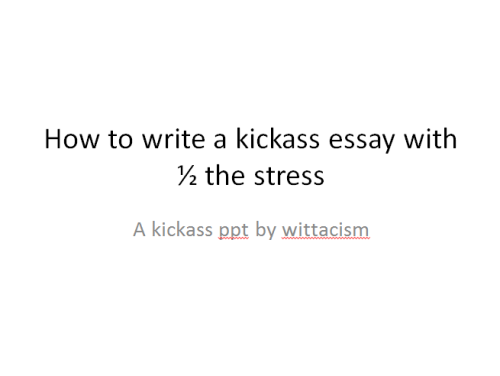


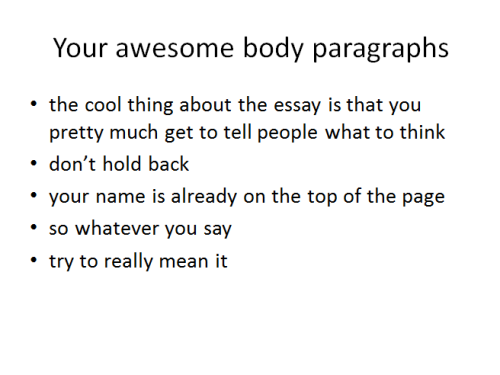
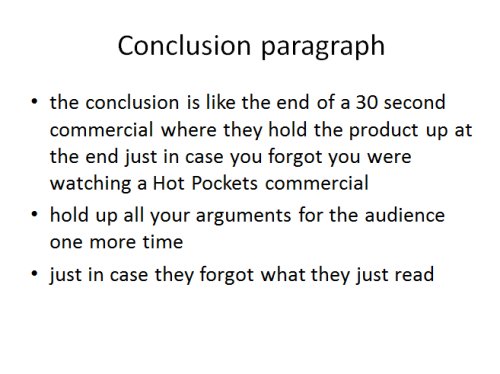
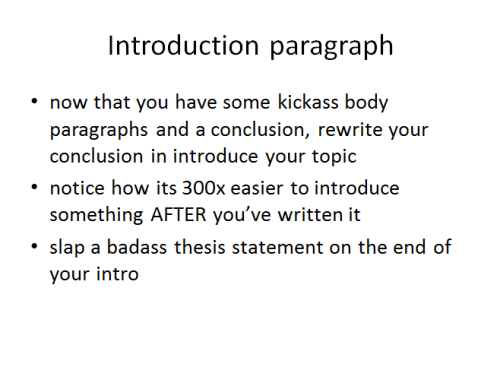
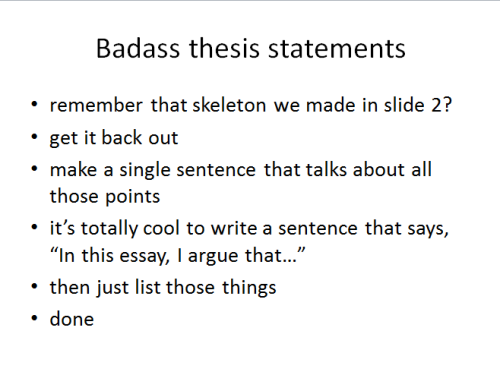
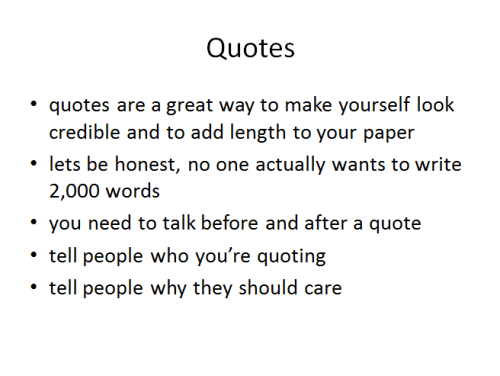
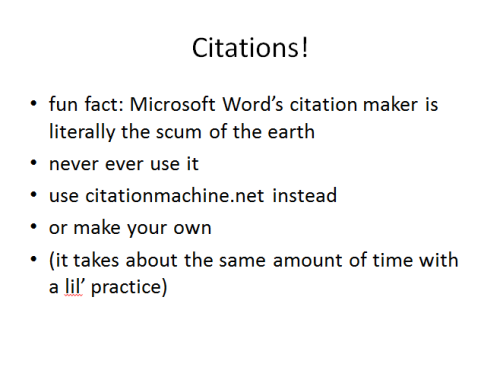

It’s essay writing season for tons of students!
After being a college writing tutor for over a year, I thought I would share my advice with all you awesome people on tumblr. This is how I write essays, but if you’ve got more tips, feel free to add them below.
Happy writing. You can do it!
Cats and kittens,
Here's a link to a Google doc file I created. You'll find:
Entire classic books written or translated to French (divided by country/continent + by genre in the French section)
The first chapter FR/EN of very famous novels
Quizzes (made by yours truly)
Have fun!

Japanese starter pack
SO you’ve finally said okay, I want to learn Japanese. If you’ve never learned a language before then it can seem daunting but it’s a very rewarding experience! I’m gonna lay out what helped me start and stuff that I think would’ve been helpful for me even early on! But I still recommend doing your own research and trying lots of different methods bc language learning especially by yourself is a very personal experience! This is also meant for absolute beginners just looking to get started so I will try to keep it simple.
First I just want to say I think your first goal should be “I want to be able to read and write kana fluently” because even just that will open so many doors and send you well on your way, but most importantly because: romaji will not be there for you. At all. And to be able to learn to read efficiently you need to read! Just like when you first learned the alphabet you must try to read everything, try to read tweets, posts, articles from NHK news easy, candy packaging, anything! You don’t have to understand what you’re reading at all, you just have to be able to read it right. And learn this with all the sources I will list in the post don’t try to learn it completely in isolation. Some tofugu kana resources to get you started/supplement other resources: Hiragana guide, Katakana guide, kana charts
Getting started immediately with apps There’s lots of language apps to pick and try out but I think the 2 best options right away are Duolingo and Lingodeer. Duolingo has improved its japanese course so much since I first did it in 2017, finally more lessons so you can use it beyond the beginner stage, separate lessons for katakana finally, and it uses more kanji to really give you a headstart on that front! Its still kind of inefficient in isolation but its so good for getting you started. If you’re fine with spending some subscription money then Lingodeer, a recently paywalled app specially made for asian languages like Japanese, Chinese, and Korean is worth giving a try! Here’s a video review of it by Miku Real Japanese
Textbooks The most famous textbook used in classrooms is Genki! A good book, its concise, streamlined, and efficient! but it’s not really designed for you to study by yourself. Its designed for the classroom and doesn’t really include a lot of content to help you become fluent in reading kana and some kanji. This can make starting feel more daunting and overwhelming for some so a lot self learners myself included recommend starting with Japanese from Zero! Specially designed for self learners and does a slow and thorough approach with an incorporated workbook section! There’s lots more options to explore tho and cough cough pdf versions to check out before you have to settle with a purchase
Youtube There are so many good youtube channels both old and new to help you at every step! If you need to hear someone explain things for you bc you want to practice listening/pronunciation, you just like lectures, written explanations didn’t help then youtube is a great asset! Japanese Ammo has lessons starting with absolute beginners, if you want to try your hand at doing lessons with no english at all, then Sambonjuku’s basics can help. Japanesepod101′s youtube is also a great place for beginners! This is just a tiny sample of the many youtube channels dedicated to teaching you japanese so if none of these clicked with you then there’s many more channels to try! All linked channels also have videos on kana!
In summary simply getting started is the first step and when you conquer kana then that’s already big progress! These are the basic tools that helped me simply start so I hope at least one of them can be helpful, and if not then there must be some tool or resource out there that will work for you! And quick note: a book I’m reading right now that I also want to recommend as supplemental reading is Fluent Forever by Gabriel Wyner. Its really good advice on how to approach and start language learning and I agree with everything I’ve read so far, and its just a really encouraging book! I also recommend checking out Tofugu.com which has a lot of great reviews, articles, advice, and resource roundups for you to explore. also shoutout to my fav langblr on here @ohitoyoshi just because. and if anyone reading want to share what helped them get stared then feel free to add on!
-
 supplepeaches liked this · 7 months ago
supplepeaches liked this · 7 months ago -
 langblr-17 reblogged this · 1 year ago
langblr-17 reblogged this · 1 year ago -
 bunynari liked this · 1 year ago
bunynari liked this · 1 year ago -
 wallflowerjournal reblogged this · 1 year ago
wallflowerjournal reblogged this · 1 year ago -
 andm liked this · 1 year ago
andm liked this · 1 year ago -
 edenofan liked this · 1 year ago
edenofan liked this · 1 year ago -
 pulvis--sidereus liked this · 1 year ago
pulvis--sidereus liked this · 1 year ago -
 hihiimissyouguys reblogged this · 1 year ago
hihiimissyouguys reblogged this · 1 year ago -
 valetoile liked this · 2 years ago
valetoile liked this · 2 years ago -
 skullzzito liked this · 2 years ago
skullzzito liked this · 2 years ago -
 qpieak liked this · 2 years ago
qpieak liked this · 2 years ago -
 vikasfrench reblogged this · 2 years ago
vikasfrench reblogged this · 2 years ago -
 vikasfrench liked this · 2 years ago
vikasfrench liked this · 2 years ago -
 threshold-of-revelation liked this · 2 years ago
threshold-of-revelation liked this · 2 years ago -
 hearthurtp41n liked this · 2 years ago
hearthurtp41n liked this · 2 years ago -
 thestormbeforethecalm reblogged this · 2 years ago
thestormbeforethecalm reblogged this · 2 years ago -
 bluestarrynitez liked this · 2 years ago
bluestarrynitez liked this · 2 years ago -
 lucasaf26570 liked this · 2 years ago
lucasaf26570 liked this · 2 years ago -
 365-choirboy liked this · 2 years ago
365-choirboy liked this · 2 years ago -
 callmecl4re liked this · 2 years ago
callmecl4re liked this · 2 years ago -
 hoodgangsta liked this · 2 years ago
hoodgangsta liked this · 2 years ago -
 magicislah liked this · 2 years ago
magicislah liked this · 2 years ago -
 unseelieships liked this · 2 years ago
unseelieships liked this · 2 years ago -
 enka-plants liked this · 2 years ago
enka-plants liked this · 2 years ago -
 aurorabellarine liked this · 2 years ago
aurorabellarine liked this · 2 years ago -
 bb9n reblogged this · 2 years ago
bb9n reblogged this · 2 years ago -
 vousloey liked this · 2 years ago
vousloey liked this · 2 years ago